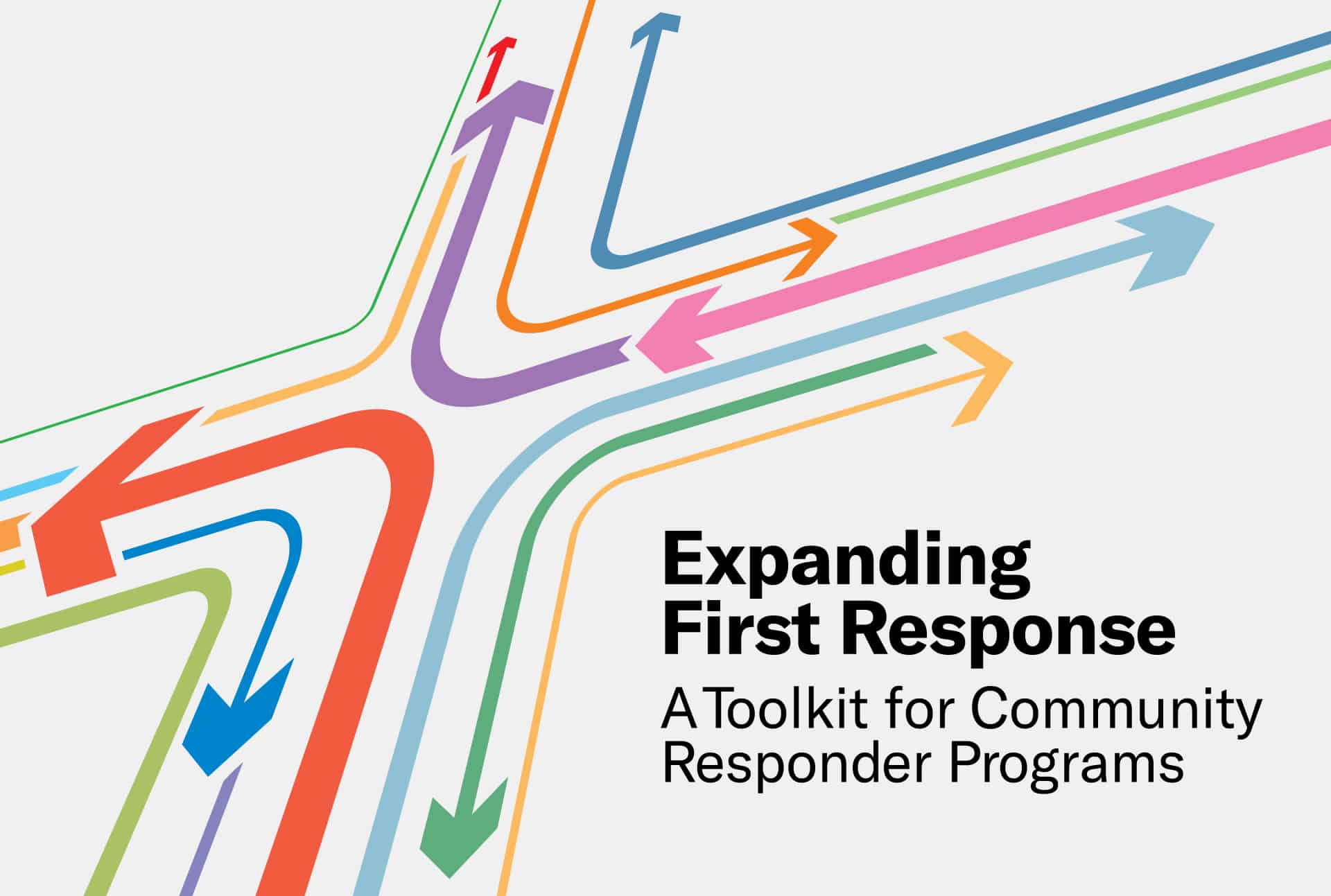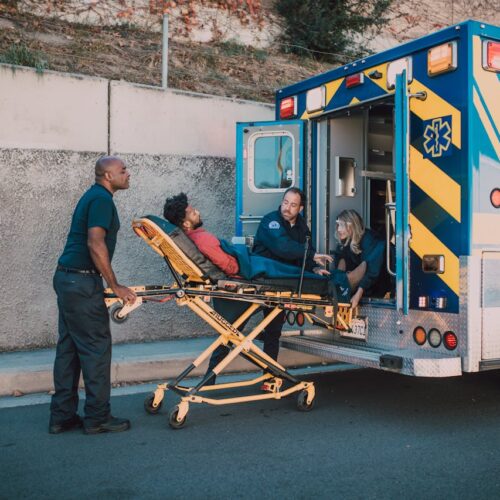
EXPLAINER: How Medicaid and the American Rescue Plan Can Support Community Responder Programs
The American Rescue Plan was signed into law in March 2021 to deliver economic relief to U.S. residents and institutions impacted by the COVID-19 pandemic. This legislation offers a substantial infusion of resources into states and local governments, particularly ones looking to invest in innovative approaches to public health and safety. For community responder programs that position health professionals and trained crisis staff as first responders to behavioral health crises and social disturbances —this creates a unique funding opportunity that can be leveraged to build or sustain their efforts.
Here’s what you need to know about using the American Rescue Plan to support community responder programs:
1. The American Rescue Plan expands the ability to use Medicaid funding for community responder programs.
As part of the American Rescue Plan, the federal government authorized an enhanced rate of reimbursement than in previous years for state Medicaid dollars spent on mobile crisis intervention services. Based on state income levels, the federal government will reimburse states anywhere between 50 to 83 percent of Medicaid spending on qualifying programs used for mobile crisis intervention. While not all community responder programs will have the ability to bill for mobile crisis intervention, many do fall under this category and thus could be eligible for reimbursement.
To qualify for this enhanced reimbursement, a community responder program must meet the following criteria:
- Include at least one behavioral health care professional and at least one other trained professional, such as a nurse, social worker, or peer support specialist—all of whom must be trained in trauma-informed care, de-escalation strategies, and harm reduction.
- Provide around-the-clock care in a community-based setting (i.e., outside of a hospital or facility) to Medicaid-eligible individuals experiencing a mental health or substance use crisis.
- Offer mobile crisis services such as screening, assessment, stabilization, de-escalation, and referrals to supportive resources as necessary.
2. States can receive this enhanced federal Medicaid reimbursement percentage for up to 12 fiscal quarters (3 years) between April 1, 2022 and March 31, 2027.
To take advantage of this funding opportunity for community responder programs, states must submit an amendment to their existing Medicaid plan or a waiver of Medicaid program requirements. Nonprofit service providers should be in touch with their state Medicaid agency to determine whether the state is applying for the enhanced federal reimbursement percentage. Providers should also discuss how to become a Medicaid billable agency if they are not already designated as such.
3. State and local recovery funds through the American Rescue Plan provide flexible support for community responder programs.
The American Rescue Plan authorizes a range of federal funding opportunities that can be used to support community responders, including $350 billion in direct relief to state and local governments known as State and Local Fiscal Recovery Funds. The Department of the Treasury has allocated these funds to states and localities with a population over 50,000; smaller municipalities can receive relief funds directly from the state government. The Department of the Treasury announced in May 2021 that these flexible dollars can be used to support crisis intervention and other behavioral health services, and a number of jurisdictions have already allocated State and Local Fiscal Recovery Funds for community responder programs.
4. The American Rescue Plan includes additional funding opportunities for community responder programs.
The American Rescue Plan also authorized several funding streams specifically dedicated to behavioral health care at the state and local levels, many of which can be used to support community responders. Some of these include:
- Funding for Certified Community Behavioral Health Clinics: $420 million in grants were authorized for Certified Community Behavioral Health Clinics (CCBHCs), a federally designated type of health care provider that supports comprehensive mental health and substance use services in a community-based setting. Health care providers must meet federal specifications to be eligible for CCBHC funding, which include a requirement to offer 24-hour mobile crisis response services such as community responder programs.
- Community-Based Funding for Local Behavioral Health Disorders and Substance Use Disorder Services: $50 million in grants were authorized for state and local governments and nonprofits to address behavioral health needs in the wake of the COVID–19 pandemic. An additional $30 million is available to support harm reduction services for people with substance use disorders. The specifics of these funding opportunities are forthcoming from the U.S Department of Health and Human Services’ Substance Abuse and Mental Health Treatment Administration.
- Community Mental Health Service Block Grant (MHBG) and Substance Abuse Prevention and Treatment Block Grant (SAPG): $3 billion in combined supplemental funding for MHBG and SAPG was authorized to provide flexible funding streams focused on offering community-based services for people with serious mental illnesses and preventing and treating substance use disorders, respectively. These block grant funds are allocated to states based on a federally determined formula. Localities can apply for funding from their state government mental health and substance use disorder authority.
To learn more about community responder programs, visit the Expanding First Response Tool Kit. For up-to-date information on ways to use the American Rescue Plan to fund state and local initiatives, visit https://csgjusticecenter.org/publications/american-rescue-plan/.
About the Author

In response to growing calls for police reform in New Jersey, particularly following the shootings of Najee Seabrooks…
Read More Three Things to Know About New Jersey’s Groundbreaking Community Response Legislation
Three Things to Know About New Jersey’s Groundbreaking Community Response Legislation
In response to growing calls for police reform in New Jersey, particularly following the shootings of Najee Seabrooks and Andrew Washington in March and August 2023, a coalition of law enforcement officials, mental health professionals, and community advocates partnered to explore public safety response alternatives.
Read More Apply Now: Join a Learning Community for Community and Crisis Response Teams to Improve Responses to Youth
Read More
Apply Now: Join a Learning Community for Community and Crisis Response Teams to Improve Responses to Youth
Read More
 Apply Now: Join a Learning Community Focused on Substance Use and Overdose Community Response Programs
Read More
Apply Now: Join a Learning Community Focused on Substance Use and Overdose Community Response Programs
Read More













